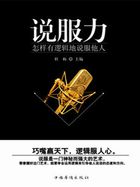The good home is thus the best of schools, not only in youth but in age. There young and old best learn cheerfulness, patience, self-control, and the spirit of service and of duty. Izaak Walton, speaking of George Herbert's mother, says she governed her family with judicious care, not rigidly nor sourly, "but with such a sweetness and compliance with the recreations and pleasures of youth, as did incline them to spend much of their time in her company, which was to her great content."The home is the true school of courtesy, of which woman is always the best practical instructor. "Without woman," says the Provencal proverb, "men were but ill-licked cubs." Philanthropy radiates from the home as from a centre. "To love the little platoon we belong to in society," said Burke, "is the germ of all public affections." The wisest and the best have not been ashamed to own it to be their greatest joy and happiness to sit "behind the heads of children" in the inviolable circle of home. A life of purity and duty there is not the least effectual preparative for a life of public work and duty; and the man who loves his home will not the less fondly love and serve his country. But while homes, which are the nurseries of character, may be the best of schools, they may also be the worst. Between childhood and manhood how incalculable is the mischief which ignorance in the home has the power to cause! Between the drawing of the first breath and the last, how vast is the moral suffering and disease occasioned by incompetent mothers and nurses! Commit a child to the care of a worthless ignorant woman, and no culture in after-life will remedy the evil you have done. Let the mother be idle, vicious, and a slattern; let her home be pervaded by cavilling, petulance, and discontent, and it will become a dwelling of misery --a place to fly from, rather than to fly to; and the children whose misfortune it is to be brought up there, will be morally dwarfed and deformed--the cause of misery to themselves as well as to others.
Napoleon Buonaparte was accustomed to say that "the future good or bad conduct of a child depended entirely on the mother." He himself attributed his rise in life in a great measure to the training of his will, his energy, and his self-control, by his mother at home. "Nobody had any command over him," says one of his biographers, "except his mother, who found means, by a mixture of tenderness, severity, and justice, to make him love, respect, and obey her: from her he learnt the virtue of obedience."A curious illustration of the dependence of the character of children on that of the mother incidentally occurs in one of Mr.
Tufnell's school reports. The truth, he observes, is so well established that it has even been made subservient to mercantile calculation. "I was informed," he says, "in a large factory, where many children were employed, that the managers before they engaged a boy always inquired into the mother's character, and if that was satisfactory they were tolerably certain that her children would conduct themselves creditably. NO ATTENTION WASPAID TO THE CHARACTER OF THE FATHER." (4)It has also been observed that in cases where the father has turned out badly--become a drunkard, and "gone to the dogs"--provided the mother is prudent and sensible, the family will be kept together, and the children probably make their way honourably in life; whereas in cases of the opposite sort, where the mother turns out badly, no matter how well-conducted the father may be, the instances of after-success in life on the part of the children are comparatively rare.
The greater part of the influence exercised by women on the formation of character necessarily remains unknown. They accomplish their best work in the quiet seclusion of the home and the family, by sustained effort and patient perseverance in the path of duty. Their greatest triumphs, because private and domestic, are rarely recorded; and it is not often, even in the biographies of distinguished men, that we hear of the share which their mothers have had in the formation of their character, and in giving them a bias towards goodness. Yet are they not on that account without their reward. The influence they have exercised, though unrecorded, lives after them, and goes on propagating itself in consequences for ever.
We do not often hear of great women, as we do of great men. It is of good women that we mostly hear; and it is probable that by determining the character of men and women for good, they are doing even greater work than if they were to paint great pictures, write great books, or compose great operas. "It is quite true,"said Joseph de Maistre, "that women have produced no CHEFS-DOEUVRE. They have written no 'Iliad,' nor 'Jerusalem Delivered,'
nor 'Hamlet,' nor 'Phaedre,' nor 'Paradise Lost,' nor 'Tartuffe;'
they have designed no Church of St. Peter's, composed no 'Messiah,' carved no 'Apollo Belvidere,' painted no 'Last Judgment;' they have invented neither algebra, nor telescopes, nor steam-engines; but they have done something far greater and better than all this, for it is at their knees that upright and virtuous men and women have been trained--the most excellent productions in the world."De Maistre, in his letters and writings, speaks of his own mother with immense love and reverence. Her noble character made all other women venerable in his eyes. He described her as his "sublime mother"--"an angel to whom God had lent a body for a brief season." To her he attributed the bent of his character, and all his bias towards good; and when he had grown to mature years, while acting as ambassador at the Court of St. Petersburg, he referred to her noble example and precepts as the ruling influence in his life.















